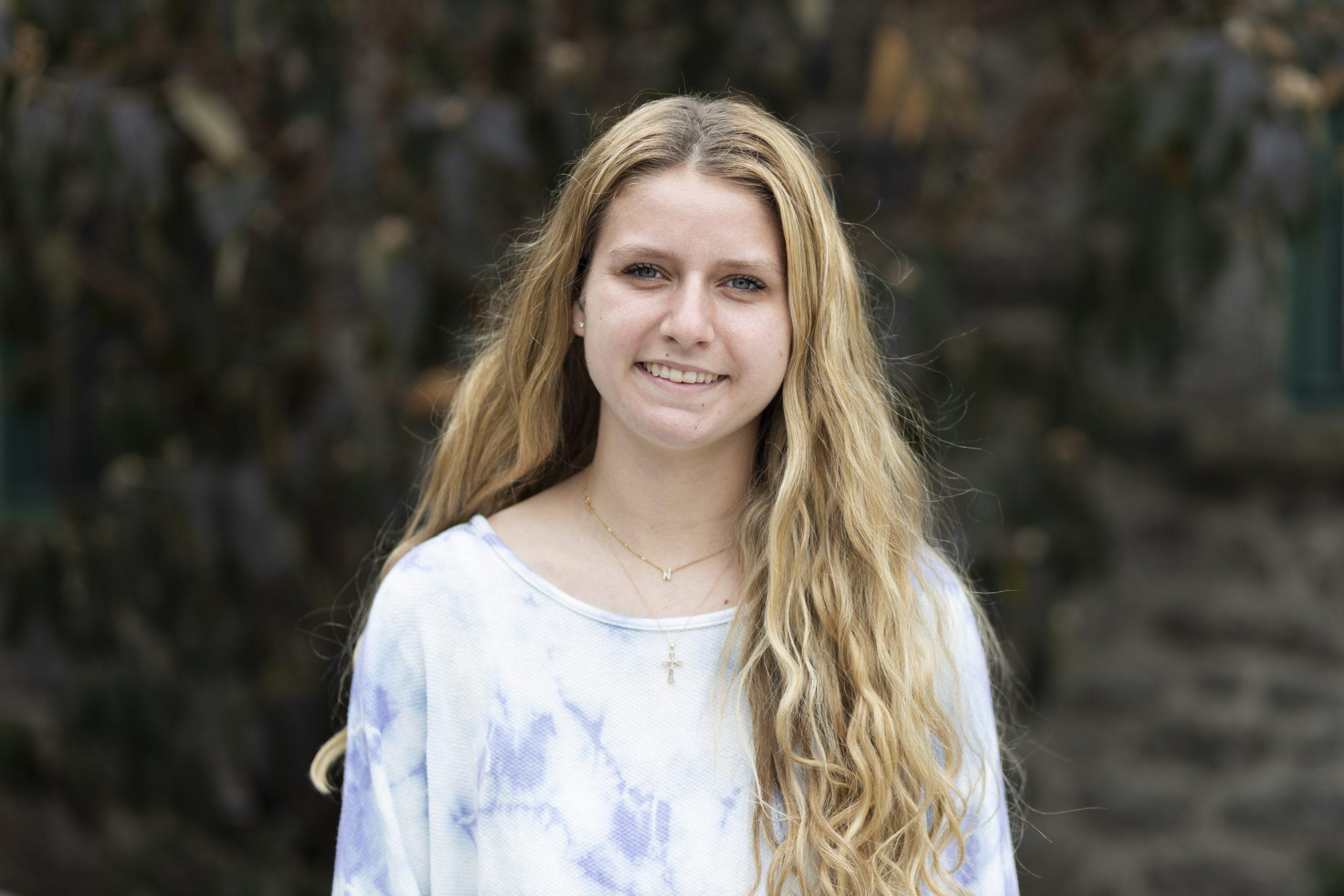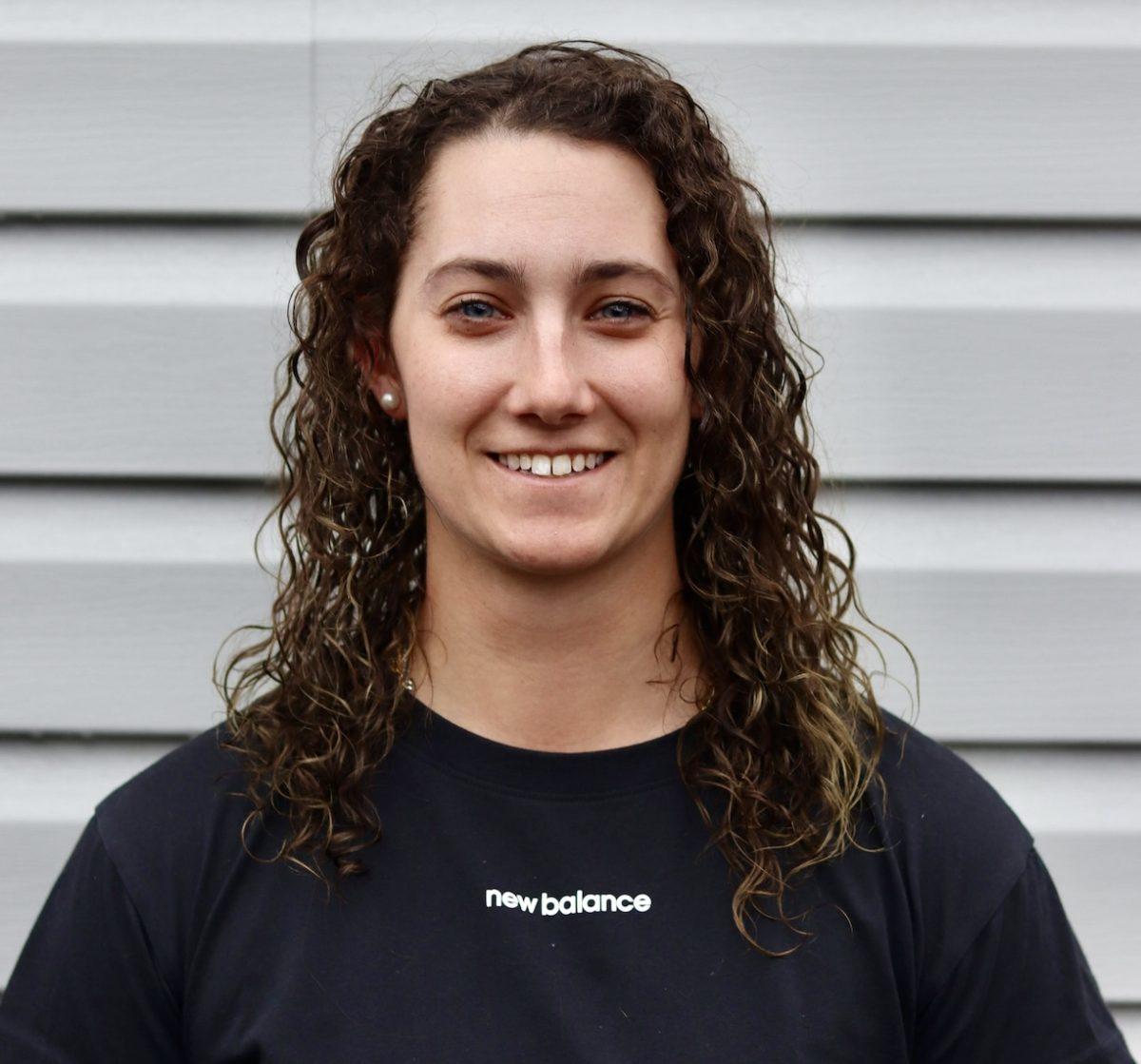
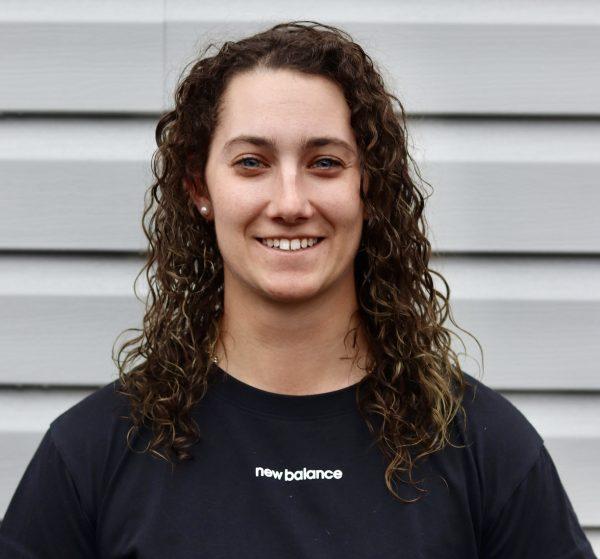
PHOTO COURTESY OF KATIE CARNAGHI
When Katie Carnaghi was hired as an athletic trainer at the University of Mary Washington (UMW) in 2022, she wanted to tackle an issue at the forefront for student-athletes: their mental health.
Having been a student-athlete who struggled with mental health herself, Carnaghi was adamant about giving athletes an opportunity to speak about their mental health. She modeled her idea on “Duke’s Let’s Talk,” a program in place at James Madison University, where Carnaghi completed her master’s degree in athletic training.
After working with Krista Rodgers, then a senior volleyball player and co-president of UMW’s Student-Athlete Advisory Committee (SAAC), Carnaghi created “Eagles Let’s Talk.” The open-discussion, round-table program meets once a month for about 60 to 90 minutes and covers an array of topics surrounding mental health and student-athlete success.
After brainstorming some important topics to address at the meetings, Rodgers said she and Carnaghi eventually narrowed them down to body image, nutrition, handling stress, athletics and academics, handling post-college athletics and supporting injured teammates.
“This year, we’ve done recovering mentally from an injury,” Carnaghi said. “We’ve talked about time management. Then, there’s always the opportunity for athletes to just ask questions, or vent a little bit. It’s a place where you can come and talk and feel like you’re supported.”
Junior women’s soccer player Macey Wissell said a meeting that focused on supporting injured teammates gave her such an opportunity.
“I’ve been injured before — I tore my ACL my sophomore year,” Wissell said. “I think that if all teams had conversations about how to support injured teammates, I think a more positive team culture would be totally encouraged. I found that [meeting] super helpful.”
Carnaghi said a necessary level of student-athlete buy-in is required to make these initiatives successful.
“I want the athletes to want to get involved because if you have buy-in from the athletes in ‘I’m more than an athlete,’” Carnaghi said, “then this program will go much further and be much more beneficial.”
Carnaghi said she understands the importance of creating a safe space for student-athletes to comfortably talk about their feelings. Wissell said the casual setting allows for students to relate to each other more, and acknowledged the space is not only safe but friendly.
“Students definitely feel more comfortable to just be honest about their own opinions about things,” Wissell said.
Rodgers said the discussion-based structure of the meetings encourages everyone who attends to get involved.
“It has been talked about a lot more in these past couple years, but I think it can still be really tough topics and almost make people feel uncomfortable, or not sure what to say,” Rodgers said. “It really was a safe space and a great spot to learn more about things that are tough to talk about.”
At the meetings, student-athletes are broken up into small groups with athletes from different teams across the department.
“You look around the room and there’s people that look like you or people that are going through the same things as you or have the same hectic schedule as you,” Carnaghi said.
Besides guest speakers and Carnaghi, only student-athletes attend the meetings. Coaching staff do not attend.
“It’s also so important to have our own space where it’s just on the student level, and you don’t have to involve your coaches,” Wissell said. “It doesn’t have to feel so serious.”
While inviting more casual conversations about mental health is one of the goals of “Eagles Let’s Talk,” Rodgers said she hopes to normalize talk in general about the mental health side of athletics.
“I think it’s a growing priority and really should be a discussion offered to people to talk about their feelings, emotions, challenges,” Rodgers said. “I hope that when people continue to talk about it, they realize that it will only help them more in their sport, in academics and in their life in general.”
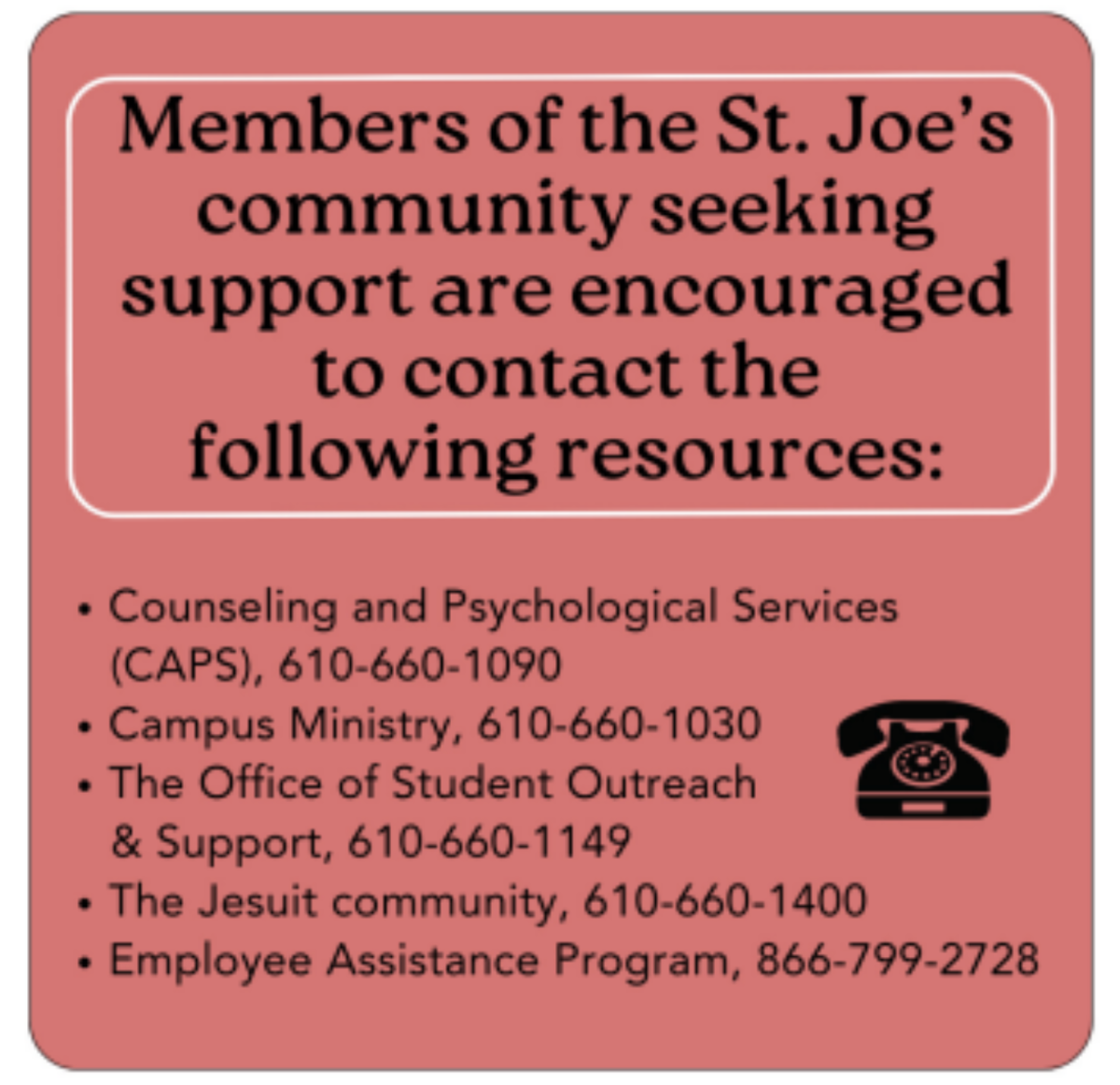
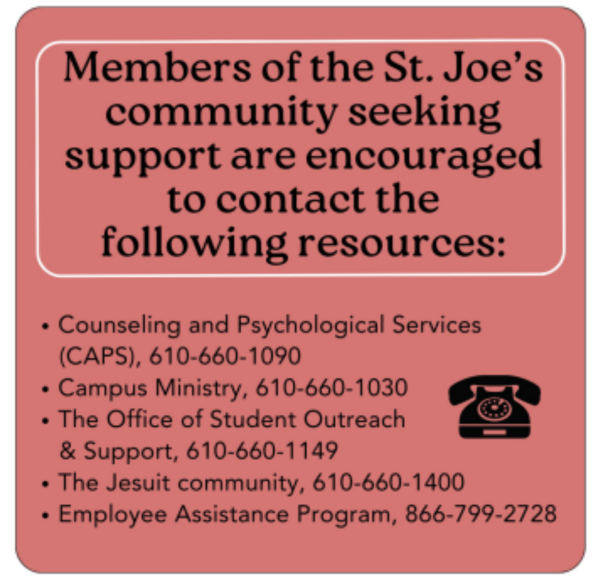
This story is part of a series focused on college athletics and mental health. It highlights ongoing efforts by different programs and individuals to break the stigma surrounding mental health across the NCAA.



















































